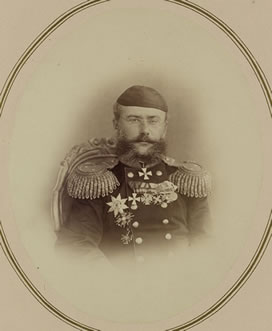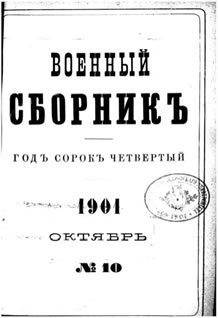| Annual Newsletter of the Slavic Research Center, Hokkaido
University |
Japanese English |
-->List
of All Publications-->Annual
Newsletter-->no.18 |
|
| No.18, February 2011 |
|||
| Remarks from the Director of the SRC |
| Global COE Program “Reshaping
Japan’s
Border Studies” |
Speakers of the Symposium (Dec. 3–4,
2010) |
| Essays by Foreign Fellows |
||
| Feng Yujun |
Alexander Morrison |
|
Military Moustaches on Microfilm
Alexander Morrison (University of Liverpool, UK / foreign fellow, SRC, 2010) I am a novice when it comes to funding applications and research proposals. The college
I am a novice when it comes to funding applications and research proposals. The college in Oxford where I did my doctorate was generous to a fault, and whenever I needed money for a trip to the archives all I had to do was ask our accountant, giving a few vague reasons why I needed to spend a couple of months in Tashkent. After seven years there, I was thoroughly lazy and spoilt, and did not have the slightest conception of how difficult it usually is to find funding for research in the Humanities. After moving to Liverpool in 2007, and being told that my annual research allowance would henceforth be £400 (generous enough by the standards of British universities). I came down to earth with a bump. An early brush with the Arts & Humanities Research Council, with its endless, convoluted, application forms, demands for detailed costings and hideous technocratic jargon, introduced me to an ugly, ruthless new world of competitive funding applications, where the ability to write up a convincing research proposal could be valued as highly as that of writing a good article and getting it accepted. I was chastened, but wiser, by the time I began thinking about the best way of spending my anticipated semester of research leave in 2010–11.
 |
| General A. K. Abramov (1836– 1886), hero of the conquest of the Zarafshan valley, taken from Turkestanskii Al’bom |
Sapporo came to mind almost immediately: the Slavic Research Center’s publications had been a constant presence in my work ever since I first stumbled across them online whilst writing my doctorate. I discovered to my delight, that whilst almost no-one in Britain was writing about Russia as an Empire, in Japan scholars had for years already been producing the sort of detailed local history of its non-Russian regions which I aspired to write. The programs for the center’s conferences and colloquia which periodically circulated on Central Asian mailing lists filled me with envy. In 2009 I had actually been able to visit for the first time, thanks to a remarkably generous speaking invitation from Professor Uyama (of a kind unimaginable to most junior lecturers at provincial UK universities). I knew I wanted to go back, and the application form for the Visiting Fellowship clinched it: simple, clear, and intellectually coherent, it took me barely half an hour to fill out. Seven weeks later, in an internet café in Almaty, I discovered that I had been successful. The usual ratio of tedious effort to scholarly and financial reward in British grant applications (something like 50:1) had been almost precisely reversed. Not only would I have four and a half months in a stimulating intellectual environment, access to a superb library and the chance to discover a beautiful and fascinating country, but my department in Liverpool were so pleased that they promptly offered me the rest of the year as research leave as well.
The topic I proposed to work on was “The Conquest of Central Asia in the Russian Official Mind,” and over the year between making the application and my arrival in Sapporo I squeezed as much time as I could out of the vacations in order to ensure that I had enough material from the Moscow and Almaty archives to work on in Japan. I arrived with several bulging papki of notes from RGVIA, AVPRI and TsGARKaz, together with a laptop full of photographs from the latter (long may their amazingly generous free photography policy continue). I had assumed that this would constitute the bulk of the materials I would be working on in Japan, shut up in the peaceful monastic seclusion of my office, but a quick scan of the microfilm catalogue in the library soon made me re-think this: twenty-five years of Turkestanskiya Vedomosti, the complete run of Voennyi Sbornik, Behbudi’s Ayina, and, to cap it all, the complete electronic version of Turkestanskii Sbornik, riches neither the British Library nor the Bodleian can offer. With patient guidance from Professor Tonai and his assistants I spent many happy mornings scrolling through Voennyi Sbornik on a state-ofthe- art computerised microfilm reader, a far cry from those venerable East German models in the reading rooms of Russian archives which seem to have been designed specifically to singe the reader’s nose and ears. Here instead I could seamlessly scan to disk an abundance of articles by those heavily bearded and moustachioed Turkestanskie Generaly – Ivanin, Grodekov, Kuropatkin, Annenkov – who recorded their roles in this classic example of asymmetric colonial warfare with such indecent haste that they seem to have begun writing their campaign memoirs well before the conquest had ended. Another revelation came about a month into my stay, when I gave a graduate seminar on “Metropole, Colony and Imperial Citizenship in the Russian Empire,” based on an article I was trying to revise for re-submission to Kritika. To be able to discuss a topic like this with experts on the Steppe, the Western Borderlands and the Volga-Ural region (represented respectively by Professors Uyama, Matsuzato, and Naganawa), together with a well-informed student audience, was enormously beneficial. Having been enlightened as to the differences between the statutes which applied in Kazan and Orenburg guberniyas, and the fluctuating nature of military rule in the Steppe Governor-Generalship, I took myself off to the Library, where a quick search revealed two shelves of books on regional variations in the legal and administrative regimes of the Russian empire, no doubt acquired as a result of Professor Matsuzato’s many years of research on the subject. A week later, and the article was substantially re-written – a month later, and it had been accepted. Finally, I had not quite realized how far my research interests in the comparative history of Empires (in particular the British in India and the Russians in Central Asia) tied into an ongoing research project on “Regional Powers in Eurasia,” in which many leading scholars from different Japanese universities were participating. In my anxiety to avoid the leaden clichés of the “Great Game,” I had originally conceived my study of the Russian conquest as largely one-dimensional, without really considering the concurrent expansion of British power in South Asia. Professor Uyama’s request for a paper which looked at the conquest comparatively led me to consider the symmetries of the year 1839, when both the Russians and the British advanced abortively and disastrously into Central Asia, with the invasions, respectively, of Khiva and Afghanistan. Looking at these two cases side by side brought me new insights, not only into the commonalities of the “official mind” across the Imperial divide, but also into the common dependence of these modern European armies on local forms of transport (tens of thousands of camels). Once again, the Slavic Research Centre provided me not simply with peace and freedom from teaching and administrative burdens, but with intellectual challenges and stimuli that brought great benefits to my research.
 |
| The title-page of Voennyi Sbornik |
When it comes to writing productively, I find that freedom from teaching is less important than freedom from the mind-bogglingly banal administrative tasks imposed on academics by the control freaks who run the British university system. In Sapporo, however, I was free of both, and Osuga-san ensured that the various routine tasks associated with settling into a new academic environment were completed smoothly and with a minimum of fuss. Consequently by the end of my time at the Slavic Research Centre I had revised two articles and had them accepted, written the equivalent of half a book on the Russian conquest in draft form, and completed two other papers on topics related to peasant settlement in Turkestan. I had also had the chance to spend some weekends enjoying Hokkaido’s stunning natural scenery, not to mention its hot springs: I have particularly fond memories of the onsen at Lake Shikotsu (although I probably should have had my soak after climbing Mt Eniwa rather than before) and of the splendid onsen-cum-curry house at Hoheikyo Onsen, a combination which smacks of genius. I cycled through the countryside around Biei, ate raw squid in Hakodate, and regarded the steaming volcanoes at Lake Toya with awe and apprehension. Having given papers in Tokyo and Kyoto, I could also honestly say that, despite these cities’ undoubted attractions, I felt lucky to be in Sapporo. The mild summer climate, the spaciousness and absence of overcrowding, the leafy beauties of the campus, and the fact that, just as in Liverpool or Oxford, I could get everywhere by bike, all combined to underscore the city’s charm. The food was a revelation to me: fish of a quality and freshness almost unknown in the UK – even the humble sanma can be a delicacy under these circumstances, although sashimi of katsuo was what I came to like best. I became quite adept at handling chunks of mutton at jingisukan restaurants, flipping okonomiyaki and swooping on tempting morsels of kaiten-sushi as they scrolled past. I slurped Sapporo ramen with gusto, and never ceased to marvel at the extraordinary variety of dishes available at the University canteen, from the (to me) sophistication of a salmon ikura donburi to the comforting warmth of katsu-kare. With all this gourmandise, I actually grew thinner, though whether this reflects more on the healthiness of the Japanese diet, or the unhealthiness of what I usually eat in the UK, I’m not sure.
My summer at the Slavic Research Centre was thus enormously fulfilling both personally and intellectually. If I ever feel tempted to question the wisdom of choosing an academic career, this is the summer I will look back to.